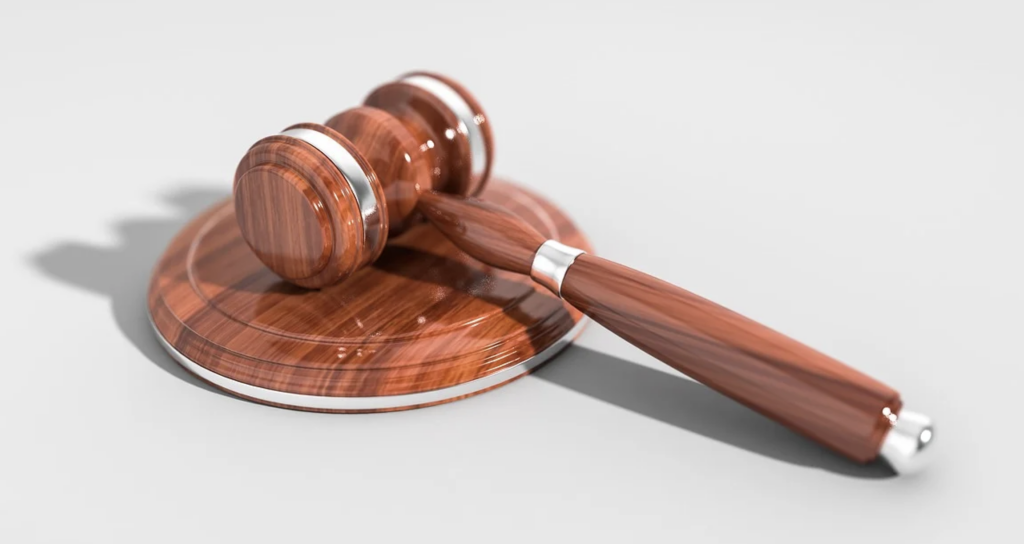Newly Announced Student-Loan Forgiveness Has Been Deemed Illegal?
The newly student-loan forgiveness plan, which will serve to help millions of Americans, has been deemed illegal by some.
This article is more than 2 years old

Betsy DeVos has never been shy about speaking her mind when it comes to student-loan forgiveness. The former Education Secretary under President Donald Trump made her position well known while serving under Trump when she released a memo saying that he did not have the authority to enact the broad student-loan forgiveness he had put in place. So, imagine her response to now President Joe Biden’s announcement of his student-loan forgiveness plan.
DeVos responded on social media when President Biden (more likely his handlers) took to his Twitter to claim, “There’s been some talk about student loan debt relief. I’m proud to say it’s true.” President Biden, along with his Twitter announcement, also included a video of him making the announcement of what his student-loan forgiveness entails.
But DeVos wasn’t having anything Biden was serving. She took to Twitter as well, responding to Biden’s announcement by saying, among other things, that “This is 100% illegal.” Clearly, though, Biden’s Education Department came up with the exact opposite conclusion as they are making plans to cut into the record $1.7 trillion student debt crisis.
To her credit, DeVos brings up two more solid points as far as student loan forgiveness goes. One was her saying that Biden’s student-loan forgiveness plan is wholly unfair to those who have already paid off their student loans or to those who have never taken one. She also says that Biden’s plan doesn’t actually “fix anything.” DeVos says that colleges will continue to up their tuitions which means students will continue to take on student loan debt.
Back in June, DeVos spoke with the podcast. The Daily Signal, telling them that she never thought that President Trump had the authority to cancel student debt and that she was now hoping President Biden would come to that same conclusion. “When we talk about this notion of forgiving student loans, what we’re really talking about is benefiting those who don’t necessarily need it,” DeVos said. “And the ones who are going to be ultimately paying for it are those who’ve never attended college, who didn’t take out student loans, taxpayers who chose not to go to higher education and take out student loans, or, frankly, many taxpayers who have gone who have faithfully paid off their student loans.” Then she concluded, “And so, it’s a matter of fairness. It’s not fair to go and just give massive student-loan forgiveness.”
The plan, as Biden describes it, will provide $10,000 in relief in student loan forgiveness but another $10,000 in relief for those who have also received Pell Grants. To qualify for up to $20,000 in relief, borrowers cannot make over $125,000 a year or $250,000 for a couple. Along with his announcement of the student-loan forgiveness plan, Biden is also delaying, for the final time, the current moratorium on loan payments until December 31, 2022. One more part of this plan will also see a cap on monthly payments not going over 5% of monthly wages.
Estimations from the White House say that over 43 million federal student loan borrowers will be eligible for the loan forgiveness and nearly 20 million could have their loan debt completely wiped out. This policy, when enacted, will represent the largest discharge of student education debt on record. But here are two questions worth asking. 1) Is that a good thing? and 2) Is it even legal?
Mark Huelsman, the director of policy and the advocacy director at the think tank Hope Center, appears to be on board. “This is going to change the lives of a lot of people. When we’re talking about full cancellation for 20 million people, this is unprecedented.” And while Huelsman appears to think this plan will be great, there are many out there who don’t think it’s enough. Some activists who have been fighting for this relief feel not enough has been done. They think the policy could be and should be much more generous. Many were looking for a complete wipeout of the student loan debt.
Still, there were many Democrats who, along with Republicans, were angered at this student-loan forgiveness plan saying it is fiscally irresponsible. They claim that this new policy will be completely unfair to the millions who will now be on the hook for money they themselves never borrowed.
As for the legalities of the student-loan forgiveness plan, that is still in question and maybe for some time. It very well may come down to those five Supreme Court Justices to decide its fate. The chances that they allow it to move forward are slim, but the Biden Administration may already have things covered on the chance the Supreme Court would rule against it.
To kind of put things in perspective first, what many may not realize before all this student-loan forgiveness stuff was at the forefront is that the federal government forgives student loans often. As in, all the time. There are numerous statutes written that give our Department of Education (DoE) the authority to cancel student loans for any number of reasons. To understand what has gone on before Biden’s announcement, the DoE has already made 1.6 million borrowers happy by relieving them of $32 billion in student loans. So, it’s not like this hasn’t happened or isn’t already happening.
None of those monies were surrounded by lawsuits or legalities. No one batted an eyelash when President Biden told over 323,000 disabled borrowers, that they needn’t worry about their $5.8 billion in student loans. He simply canceled them without issue. Finally, there was not one peep uttered when Biden also rewarded borrowers who entered public service with debt relief that has so far totaled $10 billion and affected over 175,000 borrowers.
So, is it illegal? Well, according to the Heroes Act, that answer would be “no.” This law gave the secretary of education, Miguel Cardona, the authority to “waive or modify” student aid programs “in connection with a war or other military operation or national emergency.” The key here is the “national emergency’ part. The Heroes Act allows Cardona to ensure that those who borrow the money “are not placed in a worse position financially” because they were “affected” by such an emergency. The COVID pandemic qualifies as an “emergency.”
The issue here now is one DeVos brought up. The Heroes Act was not written to be a “mass cancellation” of student loan debt. While DeVos has continued to make that argument, the Biden Administration’s Department of Education says she is wrong and has since moved forward with the student-loan forgiveness plan. Also backing up the DoE is the Justice Department’s Office of Legal Counsel which said that under the Heroes Act, the secretary of education could decide when relief is necessary and who can get it because of the emergency. They also stated that because this relief does not need to be provided on a “case-to-case basis”, the relief can be given to any and all.
Going by the language of the law, it would appear that the student-loan forgiveness plan is legal. Now, this doesn’t mean there won’t be fights in the near future, because fighting is what we do. Where it ends up, though, is another story for another time.
At this moment, the student-loan forgiveness relief is there. The Biden Administration will be sending out forms (probably available online) that they will fill out to certify if they qualify under the new income guidelines. The vast majority of federal loan borrowers should qualify for the relief. Graduate students will qualify and Parent Plus loans will also be eligible for relief.





